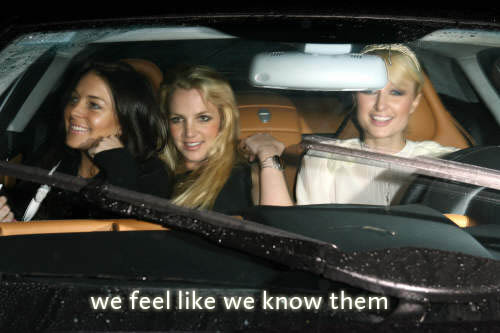
Evolutionary psychology is the study of human behavior as the result of natural selection. Our patterns in choosing mates, reproducing, and going about our daily activities are explained as adaptations of how our ancestors adjusted to their environments. Our primary goal as humans, claim followers of evolutionary psychology, is to make sure that our genes are passed on to the next generation. For that reason, women may seek out older, more wealthy mates that can provide for offspring, while men may look for younger, more fertile females who can produce more heirs.
Our primitive ancestors lived in small groups, under which they had to ensure that their needs were met. Our tendencies to help others, even in modern-day society in which we receive no direct benefit, are explained as an adaptive way that we ensured our own survival through reciprocity.
In primitive societies where everyone lived together, it was also incredibly important to pay attention to who was sleeping with whom and who did what. We’re naturally nosy because we once needed gossip to survive. If someone was pregnant, breaking up or hooking up, our ancestors needed to know because it directly affected them. The media makes celebrities recognizable to everyone, and it’s in our nature to talk about them as if they were friends and family:
Morality most likely evolved in these tiny bands of 100-200 people as a form of reciprocal altruism, or I’ll scratch your back if you’ll scratch mine. But as Lincoln noted, men are not angels. There are cheaters. Individuals defect from informal contracts. Reciprocal altruism, in the long run, only works when you know who will cooperate and who will defect. In these small groups cooperation is regulated through a complex feedback loop of communication between members of the community. (This also helps to explain why people in big cities can get away with being rude, inconsiderate, and uncooperative—they are anonymous and thus not subject to the normal checks and balances that come with knowing people and seeing them every day.) In order to play the game of reciprocation you need to know whose back needs scratching and who you will trust to scratch yours. This information is gathered through telling stories abou other people, better known as gossip. According to anthropologist Jerome Barkow (1992, 627-628):
If no one tells you the gossip, you are an outsider. Gossip from an anthropologist’s perspective is a means of social control, a sanction that forces one to adhere more closely to social norms than one would otherwise be inclined. Reputation is determined by gossip, and the casual conversations of others affect one’s relative standing and one’s acceptability as a mate or as a partner in social exchange. In Euro-American society, gossiping may at times be publicly disvalued and disowned, but it remains a favorite pastime, as it no doubt is in all human societies.
The etymology of the word “gossip,” in fact, is enlightening. The root stems are “god” and “sib” and meant “akin or related.” Its early use included “one who has contracted spiritual affinity with another,” “a godfather or godmother,” “a sponsor,” and “applied to a woman’s female friends invited to be present at a birth” (where they would gossip). The word then mutates into talk surrounding those who are akin or related to us (Oxford English Dictionary). Not surprising, we are especially interested in gossiping about the activities of others that most effects our inclusive fitness, that is, our reproductive success, the reproductive success of our relatives, and the reciprocation of those around us. In the Bio-Cultural Evolutionary Pyramid from the previous chapter, gossip and storytelling are most common and effectual in the middle levels of the family, extended family, and community. It is here where we find our favorite subjects of gossip—sex, generosity, cheating, aggression, violence, social status and standings, births and deaths, political and religious commitments, physical and psychological health, and the various nuances of human relations, particularly friendships and alliances. Normal gossip, then, is about relatives, close friends, and those in our immediate sphere of influence in the community, plus members of the community or society that are high ranking or have high social status. Gossip is the stuff of which not only soap operas, but grand operas are made.
But why, in our culture, do we gossip about total strangers, namely celebrities? The probable reason is that the mass media makes these figures so familiar to us that they seem like our relatives, friends, and members of the community. This is true even for fictional characters on television. “Who shot JR?” was a topic of much conversation in the 1980s. If we do not have Cinderella, we create one in people like Diana Spencer. Why would anyone care who Princess Diana slept with or what her status was within the Royal Family? Because our Pleistocene brains are being tricked into thinking that Princess Diana is someone we personally know and someone we should care about.
[Written by Michael Shermer and found on Human-nature.com]
So when you indulge in celebrity gossip daily, don’t feel guilty, it’s in our nature. It’s also in our nature to overeat to prepare for inevitable periods of scarcity which never come, so I guess I shouldn’t keep trying to justify my celebrity obsession with scientific reasons.
Thanks to my friend David for reminding me of this. I’ve read a few books on evolutionary psychology, but that was years ago and I’m by no means an expert. If you know more about this field please add your thoughts in the comments.
Here is Wikipedia’s entry on Evolutionary Psychology, and here’s a FAQ about the field. I also wanted to recommend David Buss’ book Evolution of Desire, but a lot of hardcore evolutionary psychologists are trashing it for being too salacious without enough substance. Maybe that’s why I enjoyed it.











Comments are Closed
We close comments on older posts to fight comment spam.